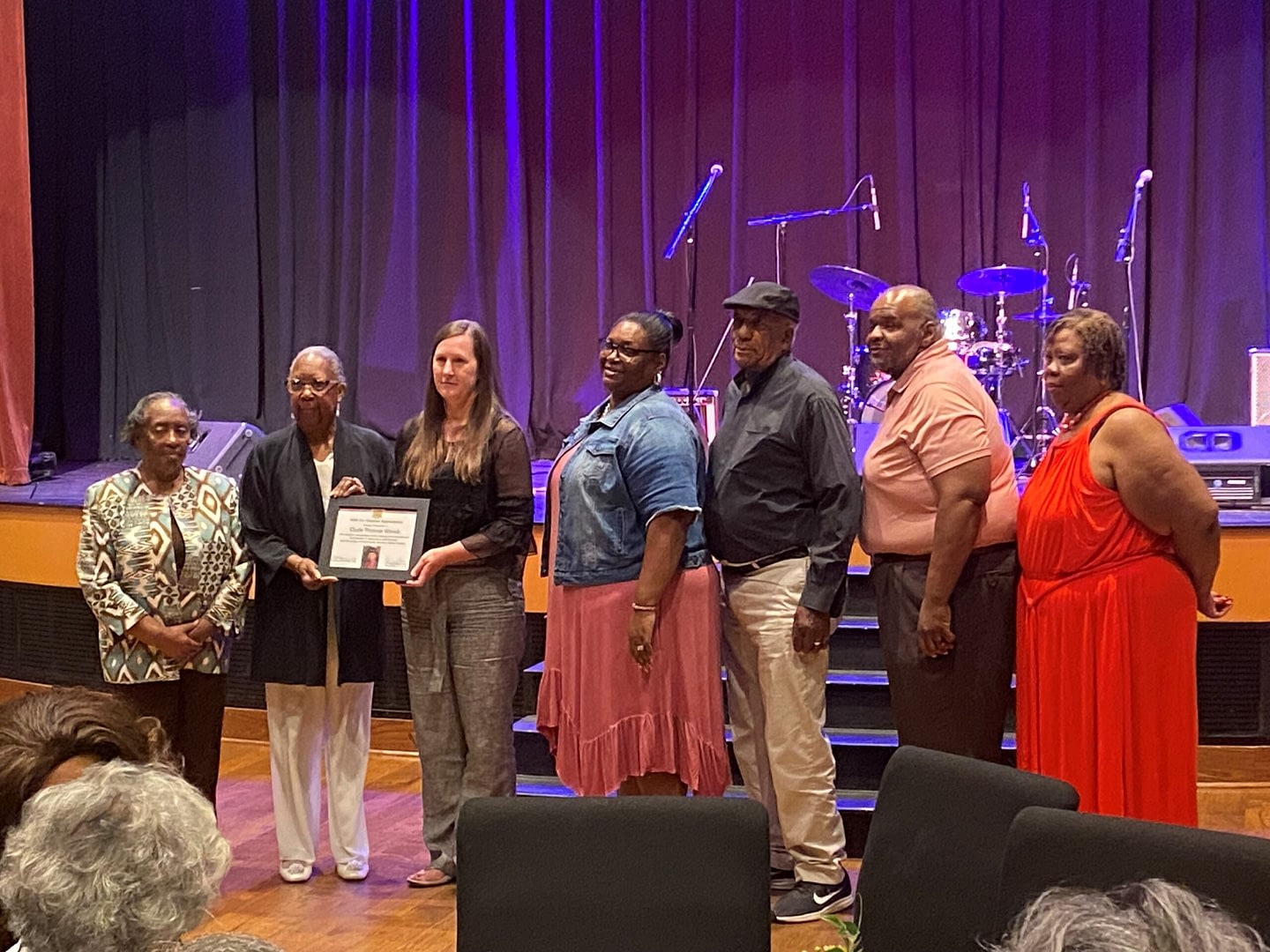Smith-Wright Law is Rooted in Agriculture

Members of the firm of Smith-Wright Law were on hand for the celebration of farming in Wilson County. The Wilson County Black History Committee (WCBHC) hosted the Harvest Heritage Celebration at the Capitol Theatre in Lebanon on September 24 to honor the legacy of Black farmers in Wilson County.
The 103-year-old Clyde Thomas Woods was honored by the WCBHC with a certificate of appreciation at the 9th Annual Harvest Heritage Wine & Cheese Celebration for his lifelong dedication to raising mostly livestock, tobacco, and hay in Wilson County in the town of Commerce.
Since Mr. Woods could not be present, industry leaders James Cason, Sonya Smith Wright, Dalydia Cason Clemmons, Rev. Andrea Clemmons, and Brenda Ward accepted the designation on behalf of his service from WCBHC President Mary Harris and WCBHC Board Member Jo Pride before about 125 guests. WCBHC generates funds from the annual benefit for the restoration of the slave-built 1827 sanctuary of Pickett Chapel in Lebanon into an African American arts, heritage, and cultural museum center. The City of Lebanon, Cumberland University, Lebanon First United Methodist Church, and Smith-Wright Law Firm were also among the organizations who bought tickets along with individual donors. Besides dinner, there was dancing to the jazz and blues Regi Wooten Band.
WCBHC’s vision and mission is to tell the stories of the lives of the Black residents of Wilson County through education, events, and exhibits. It has programming throughout the year at its new Annex.
Once every five years, the USDA census tallies the demographics of farmers that operate in America on plots of land with $1,000 or more in income from animals, fruits, and/or vegetables. The next census is set to be taken this November.
Wilson County identified 39 farmers in 2017 who were Black or African American from the total 2,683 farmers, less than .015 percent, mostly raising grains, hay, and cattle. The market value of items was $22.1 million in 2017 for its entire population that supported the agriculture of Tennessee.
The USDA records these statistics for determining the “voice, the future, the opportunity” of the nation’s growers. During the last USDA census in 2017, the overwhelming majority of the 3.2 million farmers in America were white for a total of 95 percent. Tennessee had 983 farms in 2017 with at least one Black or African American producer.
To learn more about the WCBHC, visit https://pickettchapel.com/.


